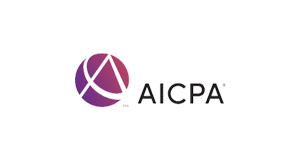On the one hand, the thought of retirement is exciting. Just hearing the word can make wonderful daydreams start playing in the theater of our mind.
No more getting up at the crack of dawn to catch the commuter train into the city. No more answering six dozen emails a day (and that’s just before lunch). No more having to run up to the office on weekends, “just for a few minutes.”
Instead of all that hassle, retirement means days of sleeping in, spending time with your spouse, kids, and (if you’re lucky) grandkids. There’s travel. Gardening. Golf. Fishing. Camping. Volunteering for causes you believe in. Doing whatever you want.
Given all those positives, why does the word retirement fill so many people with anxiety–if not actual fear?
The Top Fears You Face Before You Retire
Over the last decade and a half, we’ve asked hundreds of clients, “What are your top concerns as you approach retirement?” Most mention three primary concerns.
1) Will I Have Enough Income in Retirement?
The first, and most common one is having enough income.
That’s the number one issue. People routinely ask us: ”How do I know if I have enough money? Will my income streams be enough to support my current standard of living?”
Here’s what we tell them.
- You should crunch the numbers (and if you don’t know how, we can help. That’s what we do).
- You should know what your income will be from any sort of pension, and/or Social Security, plus any other investments of other assets.
- You should create a realistic budget based on those numbers.
- Then try to practice living on that amount of income before you retire, not after–to see if it’s workable.
- If the numbers don’t add up, then we have to create a plan to increase income and/or (if possible) decrease expenses.
These are the first steps to reduce the fear of not having enough money. You’ll know how much you’re going to have and how much you’ll need.
To be sure, this process takes effort. There’s no shortcut.You’ll have to devote a good bit of time and energy to it. But it’s immensely worth it.
It’ll give you peace of mind–or at least help you formulate a plan that will lead to a retirement that matches those good daydreams.
2) What if I Run Out of Savings?
A second common fear among people contemplating retirement is running out of savings
What a real concern this is! It’s a question everyone should wrestle with. Is my money going to last?
Remember, for a lot of people, the check they get from their pension fund and/or from Social Security is smaller than the check they got from their employer while working.
That means, they need additional money, other “income streams.” And that “additional money” from savings or an annuity has to last for perhaps 20 or 30 years after you retire.
So you need to create a spending plan as it relates to your TSP (if you’re a federal employee) or for your other savings.
This is often a tricky transition. You have been an accumulator or a saver for decades. You’ve been a trooper, faithfully putting that money aside.
But when your retirement begins, that paradigm shifts abruptly and dramatically. You’re no longer making money and saving money. All of a sudden, you’re in a place where you need to spend that money.
That’s okay. In fact, that’s what it’s there for. Now all you need is a plan to make sure that you’re spending that money wisely, so that you don’t run out.
Still, for many it’s a shock–to see your account values shrinking instead of growing. It took a long time to accumulate those assets, and suddenly your balances are starting to dip.

What about you?
Do you know how you’re going to use your retirement assets–e.g., those TSP funds or the money in that Roth IRA once you stop working?
Let me show you an example so you get a quick feel of how this could work.
Assume you’re going to have a federal annuity of $3,500 a month and Social Security payments of $1,500 per month. That’s $5,000 of income a month. Nice, right?
Except for this fact: Your current take home pay (after taxes) is $6,000. In other words, you’re facing a $1,000 budget shortfall each month. How will you cover that gap?
Well, if you have $300,000 in your TSP, you could withdraw 4% annually, which would give you about $12,000. There’s the $1,000 a month you need to cover the gap. (NOTE: This 4% withdrawal rate is not a recommendation; it’s just for illustrative purposes. Your ideal withdrawal rate may vary.)
What about non-federal workers? How can they make up the difference. They’ll need to look to other assets in their “nest egg”–e.g., annuities, IRA’s, cash value in an insurance policy, etc.–to make up the difference.
3) What will I do once I’m retired?
A third pre-retirement fear we commonly hear from folks has to do with not knowing what they’ll do.
In retirement, people trade the known for the unknown. They walk away from a lifelong routine: laboring 40+ hours a week next to certain co-workers, in a specific workplace, on a particular schedule, with a clear set of responsibilities.
All that is suddenly…poof…gone.
For decades these individuals thought of themselves as teacher, dentist, small business owner, or salesman. Now they are no longer in those roles.
For many, it feels like a loss of identity.
- Who are they without the job into which they’ve poured their heart and soul?
- How will they spend their days?
- Where will they find a sense of meaning and significance?
Research shows that the people who are most successful in retirement–and who seem to enjoy it the most–do a smart thing before they retire. They start to recreate or reinvent themselves. They go through a process of self discovery.
The goal of this exercise is to get clear on what they do and don’t like. The happiest retirees set out to recover interests that have been put on the back burner, dust off goals that have been on hold, or work to sharpen skills that are dusty or undeveloped.
So that when that last day of work actually comes, they’re ready to step into the next chapter of life with a strong sense of purpose. They’re not just leaving a job behind, but they’re moving toward an exciting future. They’re prepared financially–and mentally and emotionally.
Anxious or Confident?
Those are the three fears many of our clients have expressed. What about you?
If the mere mention of retirement leaves you feeling anxious–or even worse, afraid–we’d love to help.
That’s our mission at Christy Capital–doing everything we can to make sure our clients are able to finish well. We want that for you too.
Contact us today to see how we can help.
The information provided is not intended as tax or legal advice. Figures shown are for illustrative purposes only furthermore, the information nor the illustrations provided may not be used to avoid any tax penalties. This content represents the general views of Christy Capital Management and should not be regarded as personalized investment advice Nothing herein is intended to be a recommendation. The opinions expressed are subject to change without notice. On March 1, 2022, Retirement Benefits Institute, Inc., and a portion of its contents merged with Christy Capital Management Inc. Brandon Christy, former President of Retirement Benefits Institute, is also the current President of Christy Capital Management, Inc, a registered investment adviser.







